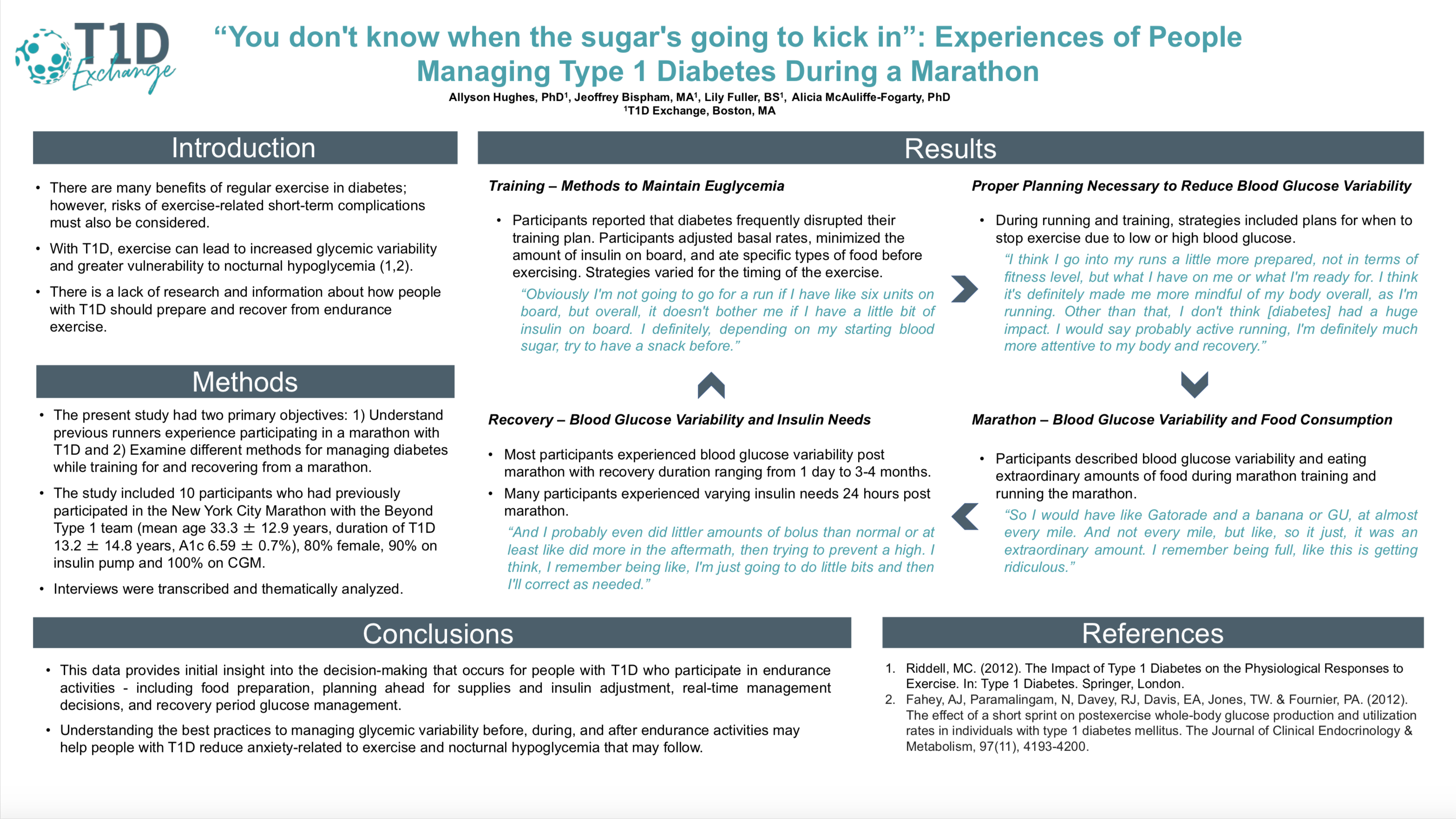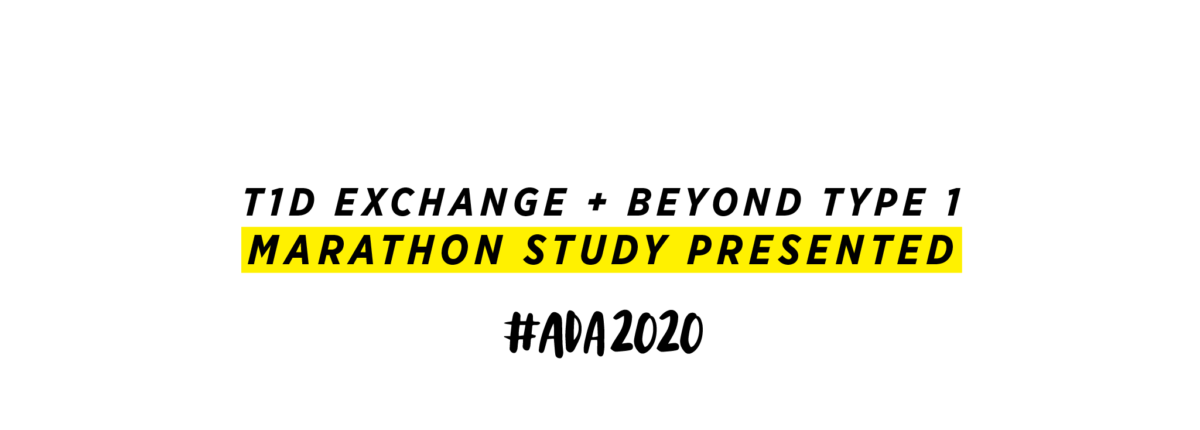T1D Exchange + Beyond Type 1 Marathon Study Presented at ADA 2020
For the past three years, Beyond Type Run has participated in the TCS New York City Marathon, bringing together runners from around the world who live with type 1 diabetes. These individuals have taken on 26.2 miles to not only raise awareness and funds for type 1 diabetes (T1D), but to also provide crucial data for a study pertaining to management of type 1 before, during and after a marathon.
There is a definite lack in longitudinal research that focuses specifically on T1D athletes engaging in and recovering from endurance exercise, and Beyond Type Run represents a unique opportunity to gather worthwhile data and examine the impact of exercise on glycemic variability.
Results of the study were presented in the poster session by T1D Exchange during the American Diabetes Association’s 80th Annual Scientific Sessions.
Authored by Allyson Hughes, PhD, Jeoffrey Bispham, MA, Lily Fuller, BS and Alicia McAuliffe-Fogarty, PhD, the study’s objectives were to look at the experience of runners who’d participated in a marathon and examine their diabetes management during marathon training and recovery. Focusing on 10 participants who had run the TCS New York City Marathon, T1D Exchange conducted interviews and analyzed accordingly. Participants had a mean age range of 33.3 ± 12.9 years, duration of time living with T1D of 13.2 ± 14.8 years, and A1c of 6.59 ± .7%. 80 percent of participants were female, 90 percent were on insulin pump therapy, and 100 percent utilized continuous glucose monitor (CGM) technology.
Interview themes revolved around maintaining euglycemia, means of preparation to reduce glycemic variability during endurance exercise, and managing that variability both during and following the marathon. Devices and device placement in particular proved integral to preparation and performance during the marathon, as did developing strategies for preventing hypoglycemia during runs. Some runners faced disruptions in their training plans as a result of diabetes and found themselves setting higher glucose targets.
The poster titled “‘You don’t know when the sugar’s going to kick in’: Experiences of People Managing Type 1 Diabetes During a Marathon,” highlights several quotes from the Beyond Type Run team. One participant described how crucial it is to properly plan for endurance running: “I think I go into my runs a little more prepared, not in terms of fitness level, but what I have on me or what I’m ready for. I think it’s definitely made me more mindful of my body overall, as I’m running.”

Ultimately, the data gathered showcases the importance of decision-making for those with type 1 as it pertains to endurance sports and the level of preparation involved. The study concluded that understanding how to properly manage glycemic variability can help athletes with type 1 reduce anxiety surrounding exercise as well as nocturnal hypoglycemia that follows.
T1D Exchange is planning to present further findings and CGM data from this study at the virtual ADCES Conference in August.
Click here for complete coverage of ADA 2020 from Beyond Type 1.





